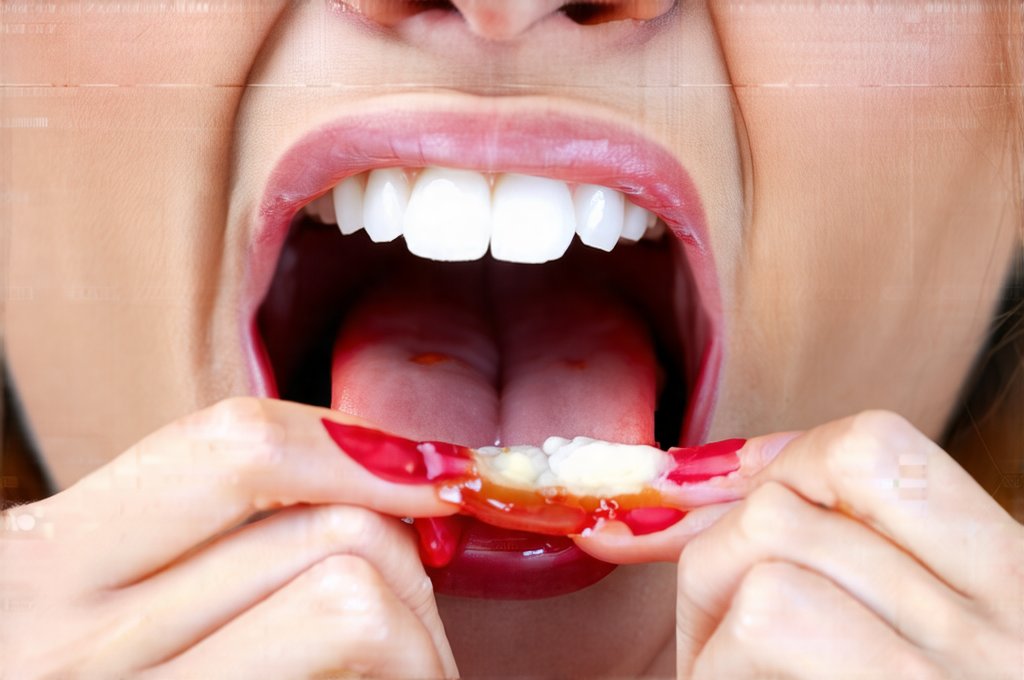Most people eat—it’s fundamental to life. Yet, how mindfully we engage in this basic act is surprisingly variable. We often prioritize speed and convenience over savoring our food, leading to a habit of rushing through meals with minimal chewing. This isn’t merely a matter of etiquette or enjoyment; the degree to which we masticate (chew) has significant implications for digestion, nutrient absorption, satiety, and even overall well-being. The vast majority of us could benefit from more thorough chewing, but is it something we can actively train ourselves to do? It’s a question worth exploring because changing ingrained habits isn’t always easy, but it’s often achievable with conscious effort and the right strategies. You might even find you are addicted to trigger foods that contribute to rushed eating.
The notion that we can retrain our eating behaviors stems from neuroplasticity – the brain’s remarkable ability to reorganize itself by forming new neural connections throughout life. Our current chewing habits are essentially neurological pathways formed over years of practice. These pathways aren’t immutable; they can be altered through deliberate and consistent effort. This means, with focused intention, we can build new pathways that prioritize thorough chewing, transforming it from a conscious act into an automatic one. It’s about shifting from reactive eating to proactive nourishment. If you struggle with how your body reacts, consider if you react differently over time.
The Science Behind Chewing & Why It Matters
Chewing isn’t simply the mechanical breakdown of food; it’s the critical first step in the digestive process. Our saliva contains enzymes like amylase, which begins carbohydrate digestion in the mouth. More extensive chewing increases surface area for these enzymes to work on, easing the burden on the stomach and intestines. This initial breakdown can significantly improve nutrient absorption. When food is adequately chewed, your body can more easily extract vitamins, minerals, and other essential nutrients. Furthermore, thorough mastication stimulates the vagus nerve – a crucial component of the gut-brain axis which plays a role in regulating digestion, heart rate, and even mood.
The benefits extend beyond just physical health. Chewing thoroughly also impacts satiety signals. It takes approximately 20 minutes for your brain to register fullness. If you eat quickly and don’t chew properly, you might consume more food than necessary before your brain catches up, contributing to overeating and potential weight gain. A slower pace of eating, facilitated by meticulous chewing, allows these satiety signals to kick in effectively, promoting a natural sense of fullness with smaller portions. This isn’t about dieting; it’s about allowing your body to communicate its needs accurately. It is also important to consider if you are sensitive to food texture, as this can impact chewing habits.
Finally, proper chewing can reduce digestive discomfort. Large food particles arriving in the stomach undigested require more effort from the digestive system and may cause bloating, gas, or indigestion. By breaking down food into smaller pieces before swallowing, we minimize these issues and support a healthier gut environment. Essentially, thorough chewing is an investment in your overall health.
Techniques for Cultivating Thorough Chewing
Retraining yourself to chew more effectively requires a multifaceted approach that combines awareness, mindful eating practices, and gradual habit modification. It’s not about imposing rigid rules but rather cultivating a gentle and consistent effort toward change.
- Start with Awareness: The first step is simply noticing your current chewing habits. For one meal a day (or even just one bite), pay close attention to how many times you chew before swallowing. Be honest with yourself – are you gulping down food without really tasting it? Are you distracted by television or other activities while eating? This self-assessment is crucial for identifying areas where improvement is needed.
- Set a Baseline: Determine your current average number of chews per bite. This isn’t about judging, but establishing a starting point. You can use an arbitrary goal initially – perhaps aiming for 20-30 chews per bite as a preliminary target.
- Implement the “20/30 Rule”: Aim to chew each bite of food at least 20 to 30 times. This is a general guideline, and it may vary depending on the food’s texture. Harder foods will naturally require more chewing than softer ones.
This process isn’t about counting obsessively; it’s about bringing conscious attention to the act of chewing. The goal is to move beyond automaticity and engage with your food in a more mindful way. Over time, this practice will become less effortful and more intuitive. You might also want to explore whether you are sensitive to cooking methods.
Utilizing Mindful Eating Practices
Mindful eating is an integral part of retraining your chewing habits. It’s about being fully present during meals – savoring the flavors, textures, and aromas of your food without distraction. This contrasts sharply with our often hurried and distracted modern eating patterns.
- Eliminate Distractions: Turn off the television, put away your phone, and avoid reading while you eat. Create a peaceful environment where you can focus solely on your meal.
- Slow Down Your Pace: Consciously slow down the speed at which you eat. Take smaller bites and pause between each one. Put your fork or spoon down between bites to encourage a slower pace.
- Engage All Your Senses: Pay attention to the colors, smells, textures, and flavors of your food. Notice how it feels in your mouth as you chew. This sensory awareness enhances enjoyment and promotes mindful eating.
- Practice Gratitude: Before starting your meal, take a moment to appreciate the food in front of you. Reflect on where it came from and the effort that went into bringing it to your plate.
These practices aren’t just about improving chewing; they’re about cultivating a healthier relationship with food and fostering a deeper sense of appreciation for nourishment. Mindful eating is a holistic approach to well-being. If you find certain foods cause issues, consider if water quality plays a role in your digestion.
Overcoming Challenges & Maintaining Consistency
Changing ingrained habits inevitably comes with challenges. There will be times when you slip back into old patterns or feel discouraged by the effort required. Here are some strategies for overcoming these obstacles and maintaining consistency:
- Be Patient: Retraining your chewing habits takes time and practice. Don’t expect overnight results. Celebrate small victories and focus on progress, not perfection.
- Start Small: Don’t try to overhaul your entire eating behavior at once. Begin with one meal a day or even just one bite per meal. Gradually increase the effort as you become more comfortable.
- Identify Triggers: What situations or emotions lead you to eat quickly and chew less? Recognizing these triggers can help you develop strategies for mitigating them. For example, if you tend to rush through meals when stressed, try to create a calming environment before eating.
- Don’t Give Up After Setbacks: Everyone slips up occasionally. If you find yourself reverting to old habits, don’t beat yourself up about it. Simply acknowledge the slip-up and recommit to your goal. Consistency is key, but flexibility is also important.
Ultimately, learning to chew more thoroughly isn’t just about changing a habit; it’s about cultivating a deeper connection with your body and embracing a more mindful approach to nourishment. It requires conscious effort, patience, and self-compassion, but the rewards – improved digestion, increased satiety, and enhanced overall well-being – are well worth the investment. Also consider if you are sensitive to spices which can impact your choices.


















